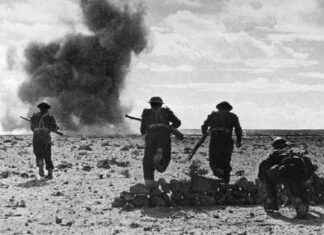Icon of the 2011 revolution, Alaa Abd El-Fattah is on the way to becoming one of all the political prisoners in Egypt, numbering 60,000 according to international organizations for the defense of human rights. Since this Sunday, November 6 and the opening of COP 27, which is being held in Sharm el-Sheikh, Egypt, the blogger has taken a radical decision. To denounce his arbitrary imprisonment, he decided to harden his hunger strike, which began on April 2, by now refusing to swallow the slightest calorie or drink the slightest drop of liquid. Already very weakened by months of deprivation, the soon-to-be 41-year-old activist therefore seems ready to sacrifice his life to denounce the dictatorial power of the all-powerful President Abdel-Fattah Al-Sissi.
Born in 1981, Alaa Abd El-Fattah grew up in a family with an independent and protesting spirit. Her father, a communist militant, was imprisoned for five years in the jails of President Hosni Mubarak. His mother, a committed teacher, and his aunt, a writer, also influenced the young Alaa in his vocation: to write against oppressive regimes and encourage citizens to regain power. Through his blog, Manalaa, but also his posts on social networks, El-Fattah practiced, as much as he could, citizen journalism, until he was rewarded with the Reporters Without Borders prize.
During the revolution of January 25, 2011, which will lead to the resignation of President Mubarak, he is in the front line, to the point of being nicknamed “the icon of the revolution”. But the successive regimes were not much better, and the then 30-year-old activist opposed both the Muslim Brotherhood, which came to power on June 30, 2012, and the military coup organized on July 3, 2013 by the current president. Al-Fattah knows the Egyptian prison world well, having spent most of the last nine years of his life behind bars. On November 8, 2017, the country’s Court of Cassation upheld his five-year prison sentence for “disseminating false information”. In fact, he is accused of being an organizer of disorder, in particular because he plans large demonstrations hostile to power.
With the opening of COP 27 and the hardening of his hunger strike, Al-Fattah hopes to make the regime bend. The international pressure on the Egyptian president is in any case very real. Britain, whose nationality the blogger has via his mother, has promised to raise his case. In a letter addressed to Alaa’s sister, the new Prime Minister, Rishi Sunak, said he was “totally committed to resolving this matter”. For his part, the American Secretary of State, Anthony Blinken, asked Al-Sissi to proceed to “new pardons and releases of political prisoners”, without however explicitly mentioning the name of the militant.
Beyond the political sphere, sixteen Nobel Prize winners, mainly in literature, such as Svetlana Alexievitch, Patrick Modiano and Annie Ernaux, published a column in the newspaper Le Monde on Friday November 4, in which they urged those responsible politicians to take advantage of their trip to Egypt. With, as a high point, a question: “If the leaders of the whole world meet in Egypt and leave without address to the most vulnerable, what hope can they still have left?”








